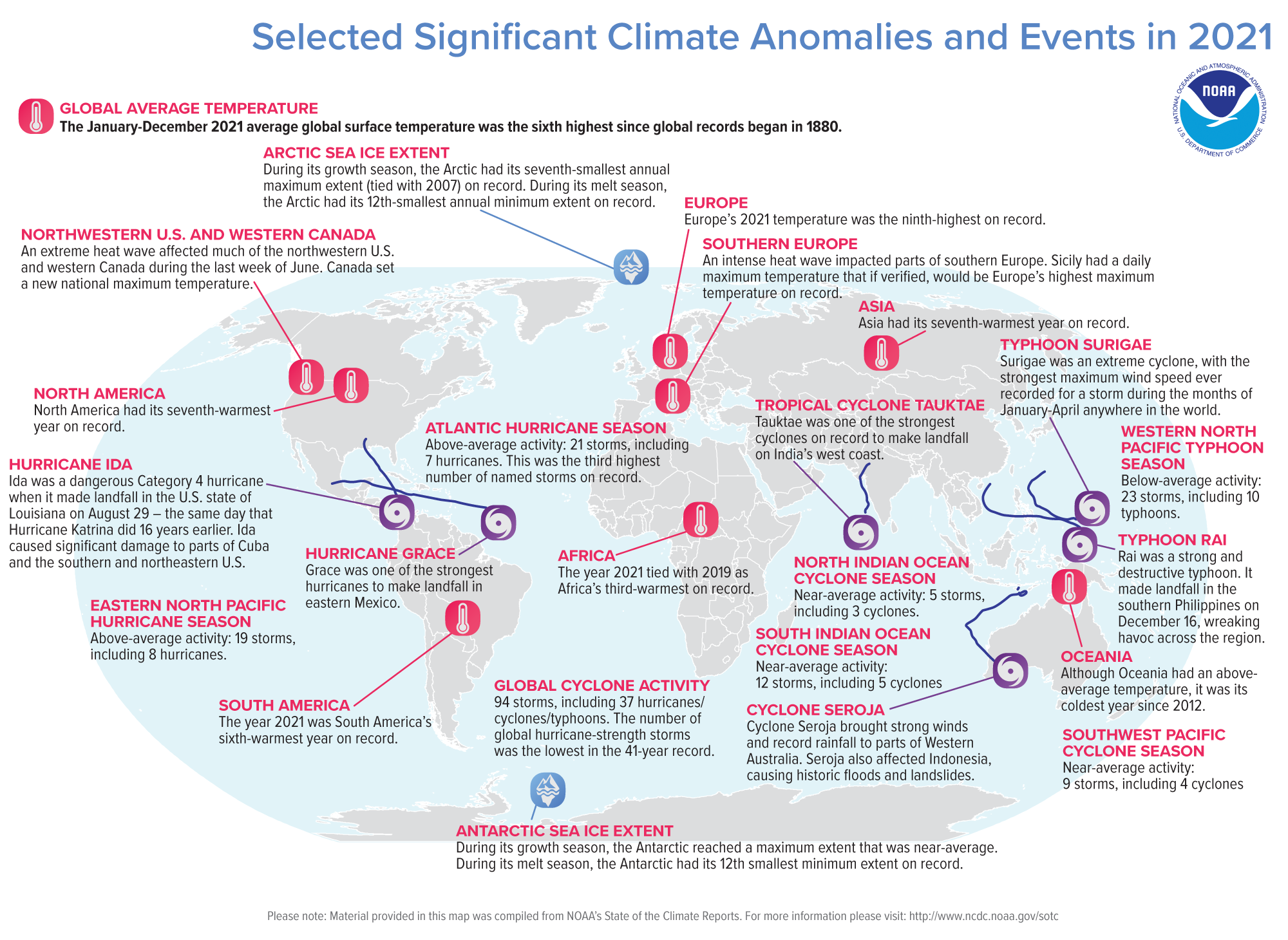
NOAA and NASA records 2021 as the Earth's sixth warmest year
An usually warm December and frequent natural disasters took the year by storm, impacting many according to latest studies.
The National Oceanic and Atmospheric Administration (NOAA) and the National Aeronautics and Space Administration (NASA) on Wednesday marked 2021 as the sixth warmest year on earth, with global records dating back to 1880.
Temperatures led to a third consecutive warm year in 2021, but the globe managed to stay cooler compared to previous years in 2019 and 2020.
Average surface temperature had reached 1.51 degrees Fahrenheit in 2021, NOAA with the use of its ocean heat content (OHC) measured the highest amount of heat stored in the ocean’s upper levels.
High amounts of heat found in the ocean contributes to rising sea levels, according to NOAA. Data also shows the earth has not had a “colder-than average” year in 45 years consecutively.
In a separate study on climate change, NASA analyzed the earth’s temperature and found that it also ranked 2021 as the sixth warmest year, tied with 2018.
“Eight of the top 10 warmest years on our planet occurred in the last decade, an indisputable fact that underscores the need for bold action to safeguard the future of our country – and all of humanity,” said NASA Administrator Bill Nelson.
NASA says several factors affect the earth’s average temperature every year. A couple of those factors are La Niña and El Niño, two climate patterns in the Pacific.
RELATED CONTENT
In order to measure the surface temperature annually, NASA analyzes temps provided by “weather stations, ships, and ocean buoys” that rely on NASA’s aqua satellite Atmospheric Infrared Sounder (AIRS).
NOAA scientists put together a Global Average Temperature map to track every climate anomaly and storm that hit in 2021.

As for December’s heat, NOAA’s study found 2021 was tied with 2016 as the fifth hottest December in 142 years.
The earth continues to experience intensifying climate change across regions, and its effects have not gone unnoticed resulting in floods, wildfires, and blazing heat with lives lost.











LEAVE A COMMENT: